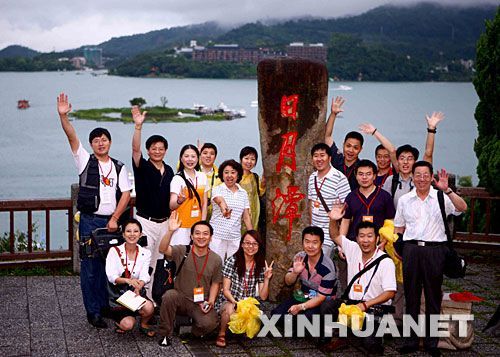Taiwan lures mainlanders after quota increased
Updated: 2016-01-21 04:58
By PENG YINING(China Daily)
|
||||||||
 |
|
This file photo shows mainland tourists in Taiwan. [Photo/Xinhua] |
Taiwan has become one of the most popular travel destinations for mainland residents during the winter holiday season thanks to an increase in the quota allowed for tour groups.
The island's tourism authority has raised the daily quota from 5,000 a day to 8,000 between Nov 21 last year and Feb 19 to cope with the growing demand for travel during Spring Festival, which falls on Feb 8.
The authority raised the quota for tour groups several times in 2014 and allowed visits by tourists from more mainland regions. Residents in 47 mainland cities can now visit Taiwan as individual tourists.
As cooperation has strengthened between the two sides, cross-Straits tourism has boomed in recent years.
Zhang Hui, public relations representative at online travel agency Ctrip, said the raised quotas had led to a 50 percent increase in customers to Taiwan so far this year compared with last year.
In 2015, more than 4 million mainland tourists visited Taiwan, surpassing those from Japan to become the biggest spenders.
Taiwan's Economic Daily News reported on Jan 10 that each mainland traveler spent on average $232.15 a day in the first three quarters of last year, higher than the average of $221.45 spent by Japanese.
It is the first time that mainland tourists have taken the top spot since Taiwan opened up its group tourism to these visitors in 2008, and to individual mainland tourists in 2011.
Taiwan and mainland residents need visa-like entry permits for cross-Straits visits.
Ni Yongjie, deputy director of the Shanghai Institute of Taiwan Studies, referring to Taiwan's leadership election last weekend, said, "The mainland has always encouraged cross-Straits exchanges and cooperation, before or after the island's political transition."
"I hope the new (Taiwan) government can consider the traveling demands of people from both sides and continue to launch favorable policies."
- Shanghai pays musical tribute to Taiwan star
- Deputy head of mainland's Taiwan affairs authority under probe: CCDI
- Taiwan project's groundbreaking ceremony held in Wuxi
- 1992 Consensus stressed by mainland after Taiwan poll
- Mainland highlights 1992 Consensus as Tsai elected Taiwan leader
- Maintaining peace across Taiwan Straits can benefit all
- Railway police nab 40,315 fugitives in 2015
- China issues blue alert for snow storms
- Blast in firework factory leaves four missing, four injured
- Struggles of a Shanxi coal mine owner in bleak industry winter
- China launches system to check authenticity of living buddhas
- China sees rising online fraud in 2015: report
- Former US VP candidate Palin endorses Trump with a 'hallelujah'
- Gunmen kill at least 19 after storming Pakistan university
- Hollande makes last-chance push to curb French unemployment
- Taxi drivers block central Budapest all day in protest against Uber
- Police respond to reports of shooting at Sydney police station
- Okinawa squares up to Tokyo over US base row

 Xi boosts ties with Saudis
Xi boosts ties with Saudis
 Cold wave sweeps across China
Cold wave sweeps across China
 Internet tycoons' wacky costumes are annual galas' highlight
Internet tycoons' wacky costumes are annual galas' highlight
 Culture Insider: 6 things you may not know about Major Cold
Culture Insider: 6 things you may not know about Major Cold
 Chinese shoppers' 10 favorite destinations in 2015
Chinese shoppers' 10 favorite destinations in 2015
 Glass bridge across Zhangjiajie Grand Canyon under construction
Glass bridge across Zhangjiajie Grand Canyon under construction
 The life of a wood carving artist
The life of a wood carving artist
 Glenn Frey, founding member of the Eagles, dead at 67
Glenn Frey, founding member of the Eagles, dead at 67
Most Viewed
Editor's Picks

|

|

|

|

|

|
Today's Top News
National Art Museum showing 400 puppets in new exhibition
Finest Chinese porcelains expected to fetch over $28 million
Monkey portraits by Chinese ink painting masters
Beijing's movie fans in for new experience
Obama to deliver final State of the Union speech
Shooting rampage at US social services agency leaves 14 dead
Chinese bargain hunters are changing the retail game
Chinese president arrives in Turkey for G20 summit
US Weekly

|

|







